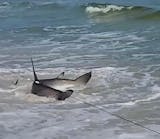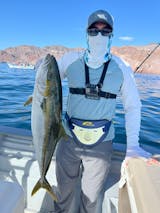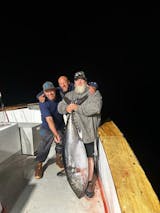
As the seasons change and water temperatures drop, cold water fishing presents a unique set of challenges and opportunities for anglers. Unlike the aggressive tactics often employed in warmer months, cold water fishing requires a more patient, subtle approach. This article delves into the behavior of fish in colder waters and how you can adjust your strategy for success.
Understanding Fish Behavior in Cold Water
Fish are cold-blooded creatures, meaning their body temperature and activity level are influenced by their environment. In cold water, their metabolism slows down, making them less active and less inclined to chase bait. Fish like bass, trout, and pike, which are active predators in warmer temperatures, become more lethargic. This behavioral change calls for an adaptation in fishing tactics.
The Right Tackle and Gear
When fishing in cold water, the right gear from Reaction Tackle can make a significant difference.
- Lines: Opt for thinner, more sensitive lines like fluorocarbon, which offers low visibility in clear winter waters and less stretch, making it easier to feel subtle bites.
- Weights and Jigs: Tungsten weights and jigs are ideal in cold water. Their higher density allows for a more natural, subtle presentation, which is crucial when fish are less aggressive.
- Hooks: Sharp, high-quality hooks are essential as fish are less likely to vigorously take the bait. Reaction Tackle’s range of hooks can provide the precision needed for a successful cold water catch.
Bait Selection and Presentation
In cold waters, the choice of bait and its presentation can greatly impact your success:
- Live Bait: Live bait like minnows or worms can be more effective as their natural movement can entice lethargic fish. Keep the bait small and the presentation slow and steady.
- Artificial Lures: If using artificial lures, choose ones that mimic the slow, sluggish movement of cold-water prey. Slow-retrieving lures or jigs worked close to the bottom are often most effective.
Technique Adjustments
- Slow Down: Slow down your retrieval speed. Fish won’t expend much energy in cold water, so a bait that’s easy to catch is more appealing.
- Targeting Depth: Fish tend to move to deeper, more stable water temperatures in cold weather. Focus your efforts on deeper spots where fish might congregate.
- Be Patient: Cold water fishing often requires more patience. Fish might take longer to bite, so give your bait more time in the water.
Respecting the Catch
Just as in warmer months, the well-being of the fish should always be a priority. Handle the fish gently and release it as quickly as possible to minimize stress and ensure its survival.
Wrapping Up
Cold water fishing can be incredibly rewarding, offering a peaceful and reflective angling experience. By understanding the behavior of fish in colder waters and adjusting your tactics accordingly, you can enjoy successful outings. With Reaction Tackle’s gear, you’re equipped to meet the challenges of cold water fishing. Visit Reaction Tackle for all your fishing needs.
Have you tried cold water fishing? What strategies and gear have you found effective? Share your experiences and tips with us.







